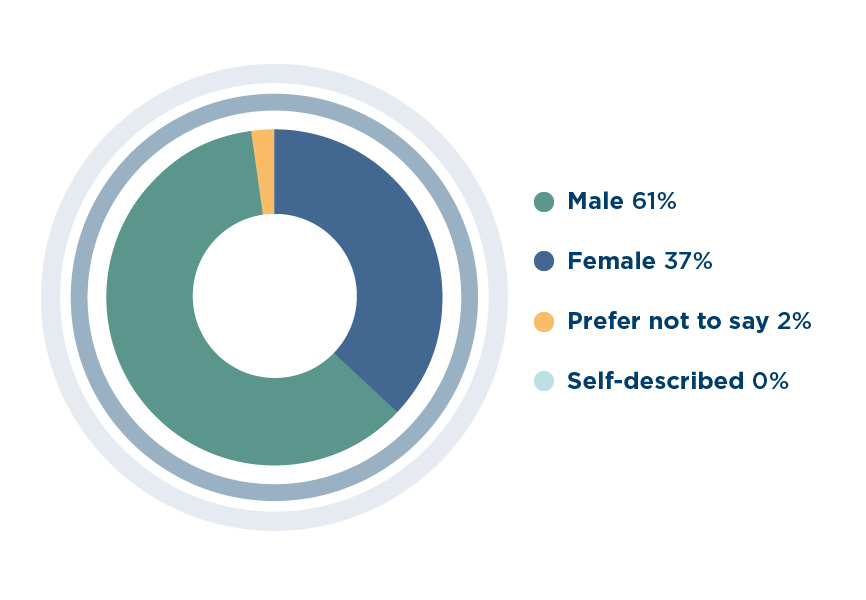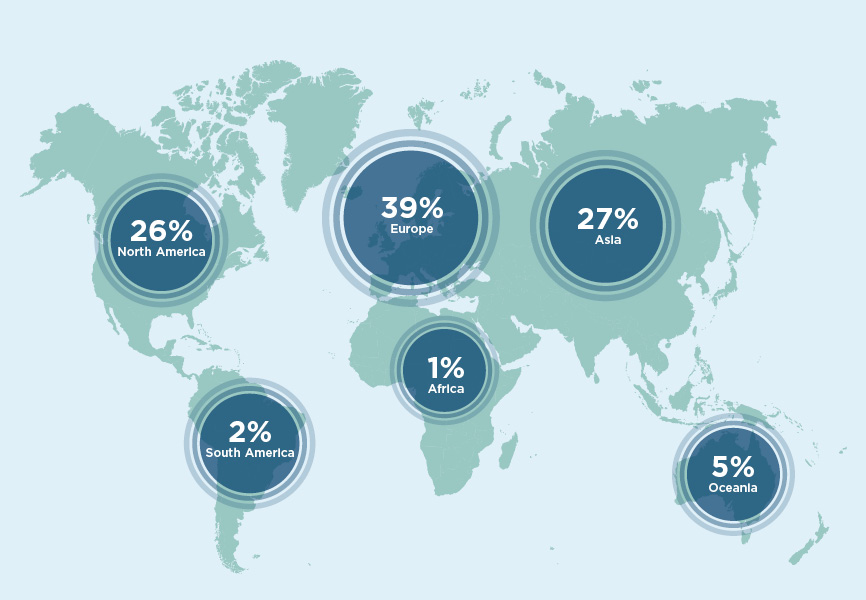How do we lead the way for the scientific community?
Editorial board members are an integral part of academic publishing. They frame the breadth of chemical enquiry, ask crucial questions to delve further into research, and help guide the chemical science community towards future discoveries.
Offering their expertise to ensure outstanding, high quality science, editorial board members define the scope of cutting-edge scientific literature.
At the 蹤獲扦, we want to recognise the dedication and vital contributions of our editorial board members from around the world – working as ambassadors, researchers and key opinion leaders.
On this page:
Why are editorial boards important
Why are editorial boards important?
Editorial board members are crucial to the work we do, not only because of their involvement in research developments, but also because of the role they play within the scientific community.
Each 蹤獲扦 journal and book series has its own editorial board, which is responsible for deciding key elements of our publishing criteria, such as setting and maintaining the RSC scientific policies and standards. These boards are made up of leading scientists who are active in academia or industry, and they apply their knowledge and expertise to support the development of the journals and books, as well as uphold a consistently high standard of content. This work helps shape the future of the chemical science community.
Our editorial board comprises over 650 outstanding researchers from more than 30 countries. They make an impactful contribution to the titles they work on and play a crucial role in advancing discovery and innovation in the chemical sciences.
I enjoy the communications, feedback, possible discussions and, somehow, recognition

Responsibilities of editorial board members
Editorial board member responsibilities cover a wide range. In addition to their broader duties, they may also play specific roles, depending on their respective journals or books.
Some of their main responsibilities include:
- Shaping strategy and scope to ensure the content and quality meets 蹤獲扦 standards
- Acting as ambassadors of publishing in the dynamic global science community
- Helping to attract a diverse group of suitable expert authors around the world
The 蹤獲扦 truly values diversity

Our diverse and inclusive editorial boards
We value different points of view and want to foster a welcoming and inclusive environment.
As part of this commitment, we have commissioned a new report called A sense of belonging in the chemical sciences, which is the first of its kind. It investigates the barriers to an inclusive community, as well as what we can do to tackle these challenges and enable more connection, respect and diversity.
We have a diverse team of editorial board members across the wide range of RSC journals and books. With their abundant expertise and passion, they have helped us move forward our publishing and shape chemistry for the future. With editorial board members across six continents, the 蹤獲扦 spans a global network of dedicated and enthusiastic science professionals.
Representation of editorial board members across continents
*Percentages are based on data collected from individual journals and books before 28 September 2021. Data is held on the geographical location and employment of editorial board members through their affiliations.
蹤獲扦 journals strike a chord with the scientific community, the world over, through the authentic spread of scientific literature

Gender diversity of RSC editorial board members
As a professional body and not-for-profit publisher, we want chemistry to be open to everyone – no matter their gender.
In 2019, we published a report about gender bias in the chemical sciences, which included in-depth gender analysis of the publication process in the chemical science community. As part of that report, we identified key areas for action, including increasing the transparency around diversity and inclusion, and the importance of reflecting the current gender balance in our research community.
We have also signed up to the United Nation’s (SDGs), aiming to accelerate progress and achieve our goals by 2030. Our commitment to inclusion and diversity contributes to the goal of gender equalities ().
We're committed to shaping things for the better, eliminating bias and driving change within the academic publishing industry. That’s why we are sharing the most recent statistics about the gender diversity of our editorial board members.

*Percentages are based on data collected from individual journals and books before 28 September 2021. Data is held on the geographical location and employment of editorial board members through their affiliations.
I’m proud to contribute to 蹤獲扦 journals due to their scientific excellence, quality and gender inclusion

Editorial board insights
Discover the most up-to-date highlights and resources from our editorial community.


